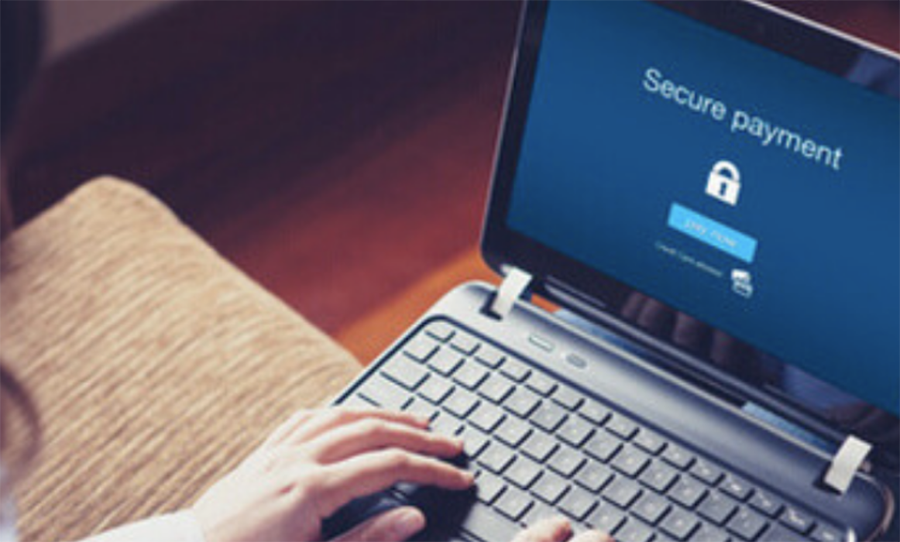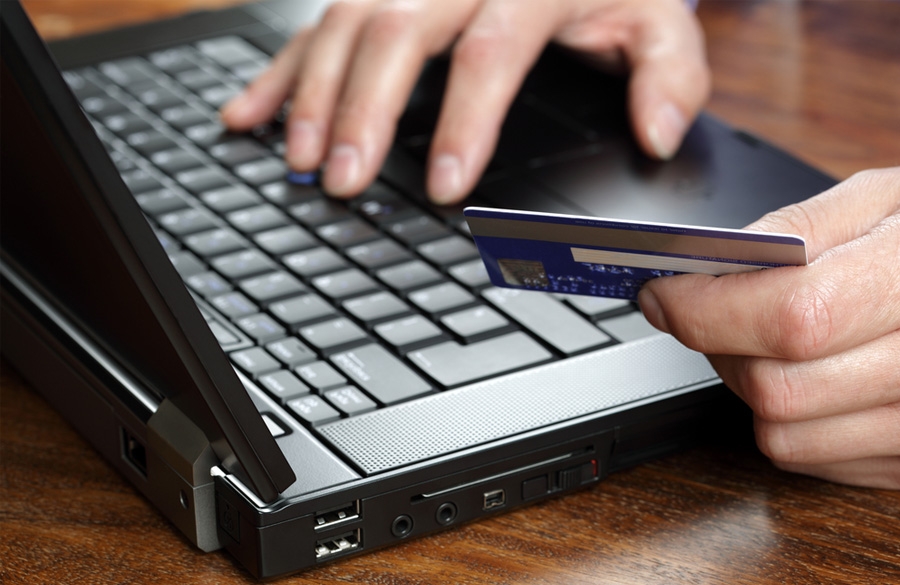Credit Card Fraud: A Must-Read Guide
When a credit card or its information is used to make purchases unauthorized by the owner, the action is known as a credit card fraud. If you have ever been a victim of it, you know how much of havoc it can cause in your personal finance.
Credit card fraud generally happens in two ways. The first is when someone steals or finds your card and then uses it to make purchases, whether in online stores or even cryptocurrency deals. The second way is when someone takes your card information such as card number, account number, PIN, etc. and makes unauthorized purchases without needing your credit card physically. The second method is more common.
Scam Detectors Most Trusted Websites in Online Security
- Guard.io (100): Surf the web safely. Clean up your browser, remove maliscious extensions and check for privacy violations.
- Incogni.com (100): Delete your personal data from the internet and protect against scams and identity theft.
- ExpressVPN (100) Stay secure and anonymous online - Best VPN Out There
How To Protect Yourself?
Every year, millions of people fall victim to credit card scams. The number is increasing even from month to month. Credit card fraud has become very common in recent years with the advent of online shopping and card payment options.
Even though the Zero Liability Policy protects you from unauthorized transactions in digital and electronic payment, you too have to be careful and protect yourself. With the drastic increase in the number of credit cards, it doesn't come as a surprise that many criminals are exploiting it to get quick money.
Fortunately, there are ways by which credit card fraud can be minimized. Here is a list of some of them:
– Frequent reviewing of your credit card transactions is the best way to recognize or avoid any card-related fraud. Many websites allow you to keep track of your credit statements and transactions at one place, such as Mint.
– When reviewing credit card statements, pay proper attention. Whenever you get the bill, don't just make the payment. Review every transaction properly, and if any of them is unfamiliar, contact the card issuer immediately.
– Keep your account information protected. Don't keep your card where others can find or see it easily.
– When you're done with your monthly statement, don't just discard it anyhow. Shred all your card related documents properly and dispose of it carefully.
– Try carrying only the cards that you need. If you have multiple cards, minimize the risk by leaving the cards that are not necessary at home.

How Does It Happen?
People have replaced credit cards with debit cards as the preferred payment option. About 40 percent of the US population prefers credit cards to debit cards. However, the more something is used the more it can be misused. These are some of the standard methods that fraudsters use to get your credit card number:
- A thief digging into your trash to find discarded receipts of credit card statements, which includes your account number.
- An immoral waiter stealing your card number and using it to make payments.
- An identity thief creating a fraudulent website and tricking you into providing your card number – which, indeed, he uses it for making unauthorized purchases.
Types Of Credit Card Fraud
Having an understanding of the kinds of fraud related to credit cards that you can fall victim to can help you avoid them. These are the main types of scams:
1. Lost or stolen cards: This is the most common type of fraud. To minimize the damage caused by this, loss or theft or card must be reported immediately while the card must be blocked as soon as possible.
2. Account Takeover: In this kind of fraud, the cardholder unintentionally gives personal information to a fraudster who then contacts the cardholder's bank, reports a lost card and change of address and obtains a new card in the original owner's name and uses it.
3. Email order/telephone order (MO/TO) fraud: This now includes e-commerce and is the largest category of credit card-related fraud. Card details are stolen and used to purchase items online, which could wreak havoc in your finances.
4. Never Received: This kind of fraud occurs when the new or replaced card is stolen from the mail and never reaches its rightful owner.
5. Fraudulent application: Another person's name or information is used to apply for a credit card.
6. Counterfeit cards: In this kind of fraud, a card is cloned from another and used to make purchases. The number has significantly dropped since the installation of EMV chips in cards and many other safety features.
7. Multiple Imprint: In this method, a single transaction is recorded multiple times. This generally happens in old fashioned credit card imprint machines which are also known as knuckle busters.
8. Unlawful Merchants: This method includes merchant employees who work with fraudsters and defraud the banks.
Extra Cautions That Online Shoppers Should Take
Online shoppers, due to obvious reasons, are at a higher risk of online fraud than the ones who do not shop online. Even though it is much safer than sending your credit card number via mail, there are still a lot of things that could go wrong during an electronic transaction. Since credit card shopping is very convenient, it is highly unlikely that we would like to stop using it altogether. Therefore, taking these precautions will help you minimize these risks:
Be sure that any website that you enter your information on has https and not just http at the beginning of their URL. The letter ‘s' at the end shows that the site is secured.
Phishing scams should be avoided at any cost. These generally come in the form of an email from some trustworthy company but is a fraudster. They typically provide a link, and it may be hard to distinguish real from fake. Therefore, never click direct links from emails. Instead, manually type the URL of the company on your browser or call the company to check if the email is genuine.
Don't provide personal information including credit card number unless you were the one who started contacting. Legal businesses will never reach out and ask for your credit card information unless there is a valid reason.

What To Do If You Fall Victim?
If you have fallen victim to a credit card fraud, you are not alone. It can happen even if your credit card is right there with you. If you discover that your credit card has been used without your knowledge, here are a few things you should do immediately:
Contact the credit card company. Zero liability policies are provided by many credit card companies nowadays, which means you won't be responsible for any fraudulent activities made from your account. Your liability for fraudulent credit card charges is also limited by federal law. If someone uses your credit card before you report it missing, you can only be held responsible for $50 of the total fraudulent charge. Any card charges made after you report its loss won't be your responsibility. Also, you will not be liable if only the card details are stolen and used.
Monitor your account activity closely. You can also consider contacting your credit card provider to put a fraud alert on your credit report. This can be helpful if you don't know how your information got stolen.
Check your bank statements, and if you think anything is suspicious or see any fraud, report the bank immediately.
Requesting a copy of your credit reports will help, since any signs of fraud that may not be noticed easily will show up in the reports.
These are all the things that you need to know so that you don't fall victim to credit card fraud. Even if you do, you can take steps which will help you get your money back. The credit card companies are trying to make it safer daily to use the cards. If fraud happens with you, you can get fraud victim assistance from many sources. But since prevention is always better than cure, it would be best to avoid it altogether.
How To Report Scams
Make your family and friends aware of this article by sharing it on social media using the buttons provided. You can also officially report any kind of fraudulent activity to the Federal Trade Commission using the link below:
How To Protect Yourself More
If you want to be the first to find out the most notorious scams every week, feel free to subscribe to the Scam Detector newsletter here. You'll receive periodical emails and we promise not to spam. Last but not least, use the Comments section below to expose other scammers.
Related article: 5 Business Loan Scams You Need To Be Aware Of
Verify a website below
Are you just about to make a purchase online? See if the website is legit with our validator:
vldtr®


TOP 4 MUST-WATCH FRAUD PREVENTION VIDEOS
1. Top 5 Amazon Scams in 2024 2. Top 5 PayPal Scams in 2024 3. How To Spot a Scam Email in 2024
- Latest Posts by Selma Hrynchuk
-
Compromised Credit Card Scam
- -
Fake Google Chrome Update
- -
Facebook Privacy Notice Hoax
- All Posts













